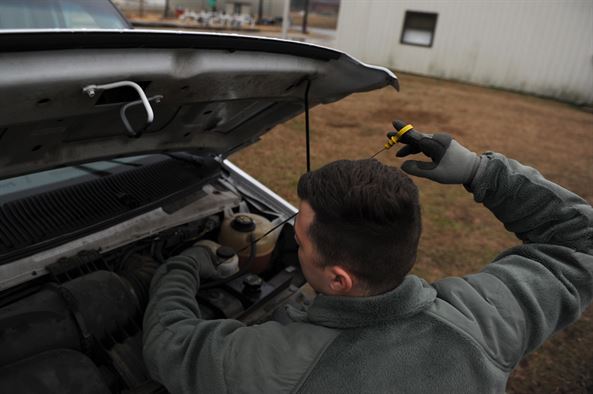Most car servicing centres offer two main types of servicing – a full car service and an interim car service.
It’s recommended that you take your car for a full service at least once a year, or every 12,000 miles, as it allows the mechanics at your chosen garage or service centre to thoroughly check the condition, performance and safety of the vehicle and prevent minor wear and tear from worsening to become a major problem. Certain fluids, oils, filters and other aspects may be adjusted or replaced too.
The above describes a full service, but what’s included in an interim car service? What does the term mean, and which car service should you choose? Here, the vehicular specialists at Dronsfields offer up the answers.
What is an Interim Car Service?
An interim service is a more basic selection of checks than those involved in a full service. It’s recommended that you take your car for these checks every six months – between full services – particularly if you drive long distance or over difficult terrain regularly (if you drive more than 20,000 miles per year, you should certainly look into booking interim services).
An interim service should not replace an annual full service, as it does not involve a number of important checks.
However, if your car is likely to incur wear and tear due to the regularity and nature of its use, booking interim services may be very helpful.
These checks can help you to keep on top of any possible developing issues, including tyre wear and low fluid or oil levels, the condition of your brakes and more besides.
This may prevent costly repairs in the long run, and will also ensure that your car remains safe and easy to drive. Regular maintenance will also help your car to retain its value for longer.
What’s Included in an Interim Car Service?
Interim services differ from service centre to service centre, but they often include:
- – Checks for damage and wear (body, wheels and trims, brakes, steering)
- – Engine check and servicing (replacing oil and filter, sump plug seal or full plug replacement check, timing belt check, spark plug check, coolant check and top up, undertray check)
- – Checks for oil and fluid leaks
- – Fuel filter check
- – Clutch, gearbox and driveshaft gaiter check, clutch fluid replacement
- – Lights and horn check
- – Battery checks
- – Steering and suspension check (power steering reservoir top up, steering rack gaiter check, wheel bearings check, shock absorber testing
- – Exhaust checks
- – Brake checks and adjustments (callipers, service brake shoes, wheel cylinders, hydraulic system, handbrake checks and lubrication, brake discs, brake fluid top up
- – Tyres and wheels check and adjustment (tyre fitting, tread depth, pressure, wear, wheel balance, wheel nut torque)
- – Windscreen and wiper checks (wiper condition check, windscreen washer position, screen wash top up)
- – Interior checks (cabin filter, dash lights)
How Long Does an Interim Car Service Take?
A typical interim car service usually takes around an hour and a half, but it may take longer if any major repairs are urgently required before you can drive away.
Interim Service Average Cost
Service prices can differ depending on the size of a car’s engine. On average, an interim car service should cost around £125. It will always cost less than the full service offered by the same garage.
Which Car Service Should I Choose?
This depends on how often you use your car, and what for. If you drive more than 20,000 miles per year, or if you often find yourself in heavy traffic or on rough terrain, you may be best opting for two services – one full, one interim – per year.
If you only use your car occasionally, or your regular routes are relatively short, you may only need a full service annually.
Getting your car regularly serviced is not a legal requirement, but it’s a very sensible thing to do in order to keep your car running safely and effectively.
You should arrange for an interim service if you feel that your car would benefit from extra fluid checks and changes, tyre pressure and tread wear checks, brake checks and other tests and tweaks between annual full services.



